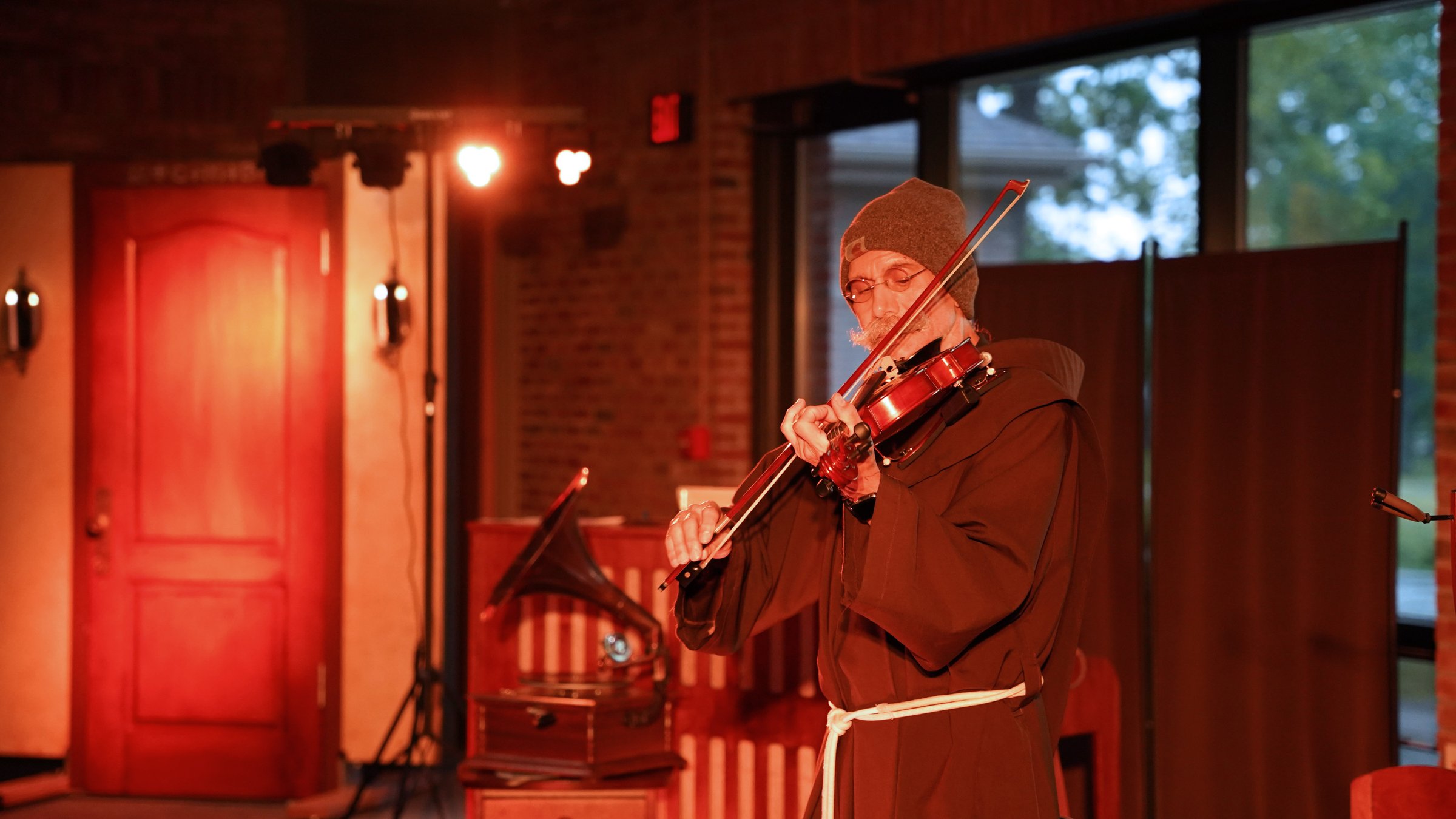Brother Al Mascia, a Franciscan friar of Duns Scotus Friary in Berkley, calls his one-act musical on the life of Blessed Solanus Casey “More Love Than Skill.” The title alludes simultaneously to the Detroit-based Capuchin Franciscan Blessed’s famously compassionate, wise, and often miraculous care of the thousands who sought his counsel and prayers — and to his infamously poor violin playing.
In contrast, Brother Al’s performance is anything but unskilled. His singing, story-telling, documentary research, and guitar and keyboard playing all evince consummate skill — honed over a lifetime of bringing Christ to others through music. At the same time, more striking even than Brother Al’s talent is indeed his love. During his presentation of “More Love Than Skill” at our Motherhouse this summer, this love struck me in the very fact of his presence on stage before us: he explained early in the evening how fear of ridicule and rejection had at one time discouraged him from public use of music in evangelization. Through Blessed Solanus’s intercession, however, he discovered the freedom that permits him now to perform for audiences across the country. He invited us, in turn, to ask for Blessed Solanus’s intercession to be freed from whatever afflictions chain us.
This freedom in love — a freedom that permits one to share one’s joy and draw people to God without thought to oneself — is the secret behind Father Solanus and the fiddle he treasured and sawed away at all his life. That fiddle had been carefully transported across the ocean from Ireland and was entrusted to the young Bernard Casey by his father. Self-taught and not very good, Solanus nevertheless played to anyone who would listen — his friends, the poor he served, those who came seeking healing — and he was often rudely hushed by those bothered by his lack of skill.
Yet Solanus persevered undeterred. One Christmas, when a friar turned up the radio in the community room to cover the sound of his playing, he relocated to the chapel, where he played for Baby Jesus in the manger. His determination, Brother Al suggested, reflected neither incorrigible stubbornness nor naivete but simplicity and generosity. Solanus knew his playing was poor, but he also knew it might give pleasure to those kind enough to receive it, as could his offering of it. He kept offering, then — perhaps as a concrete witness of the abundance of God’s generosity.
Are we, too, witnesses of God’s generosity? Do we share the truth, willing to risk scorn if it means the possibility of drawing a soul back to God? When prudently undertaken, this is neither stubbornness nor naivete; it witnesses to a reality more secure than anything else in this world, the reality of the God-man who gave His life for you and for me, the ultimate folly of love!
Sr. Maria Veritas Marks is a member of the Ann Arbor-based Dominican Sisters of Mary, Mother of the Eucharist.











